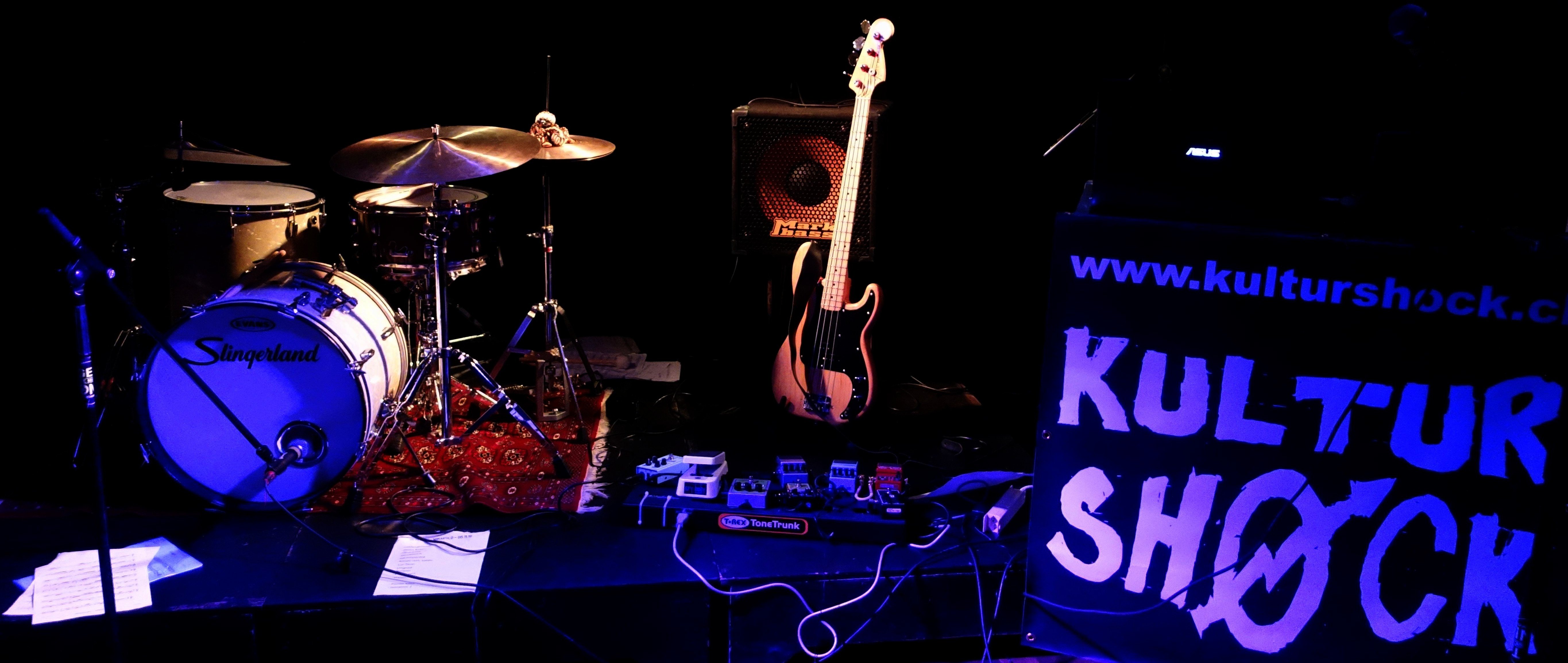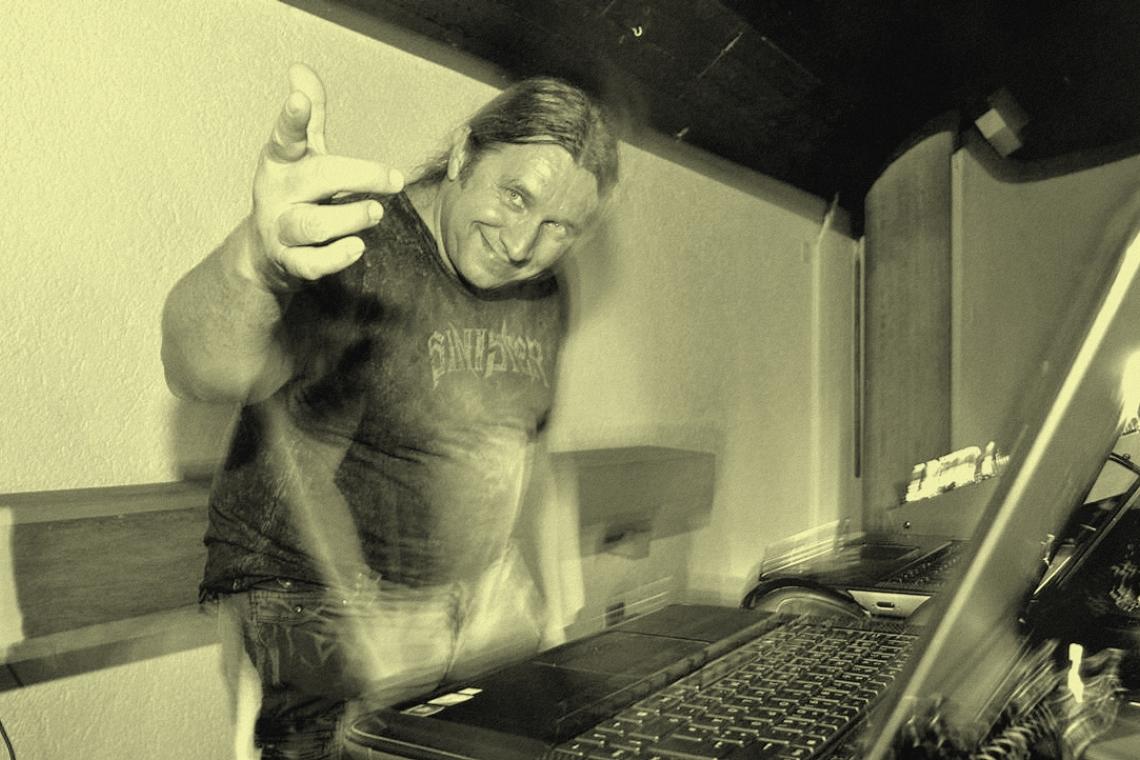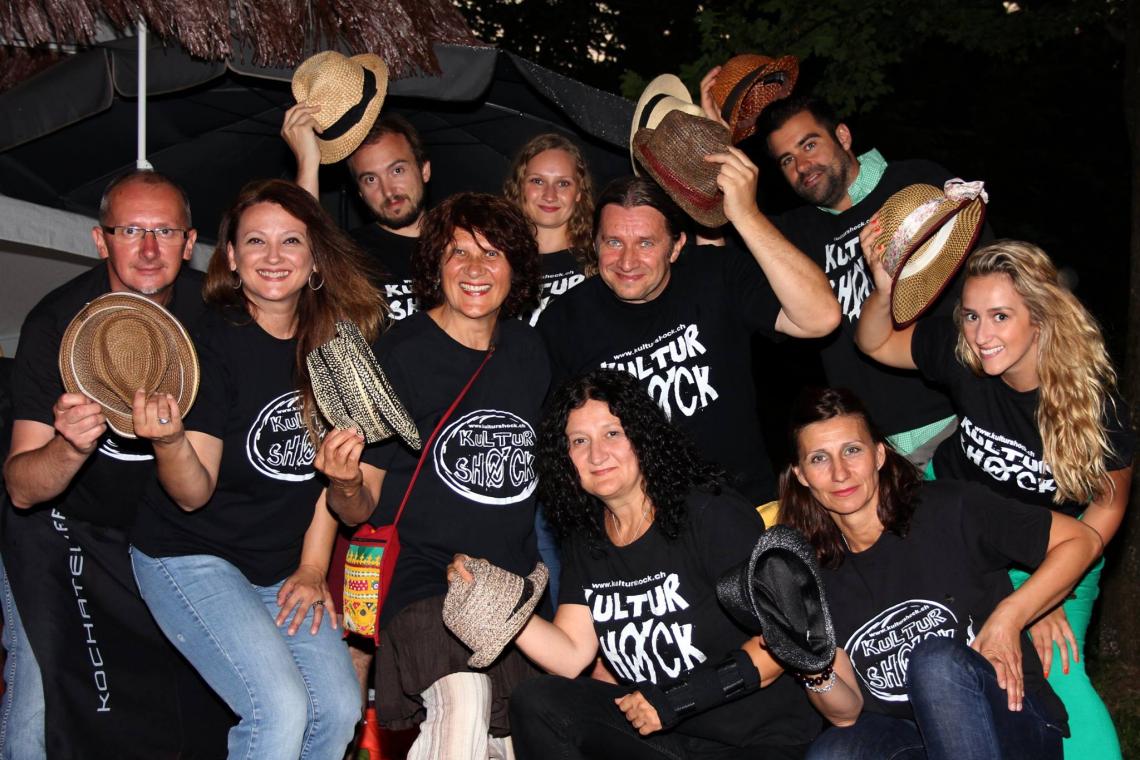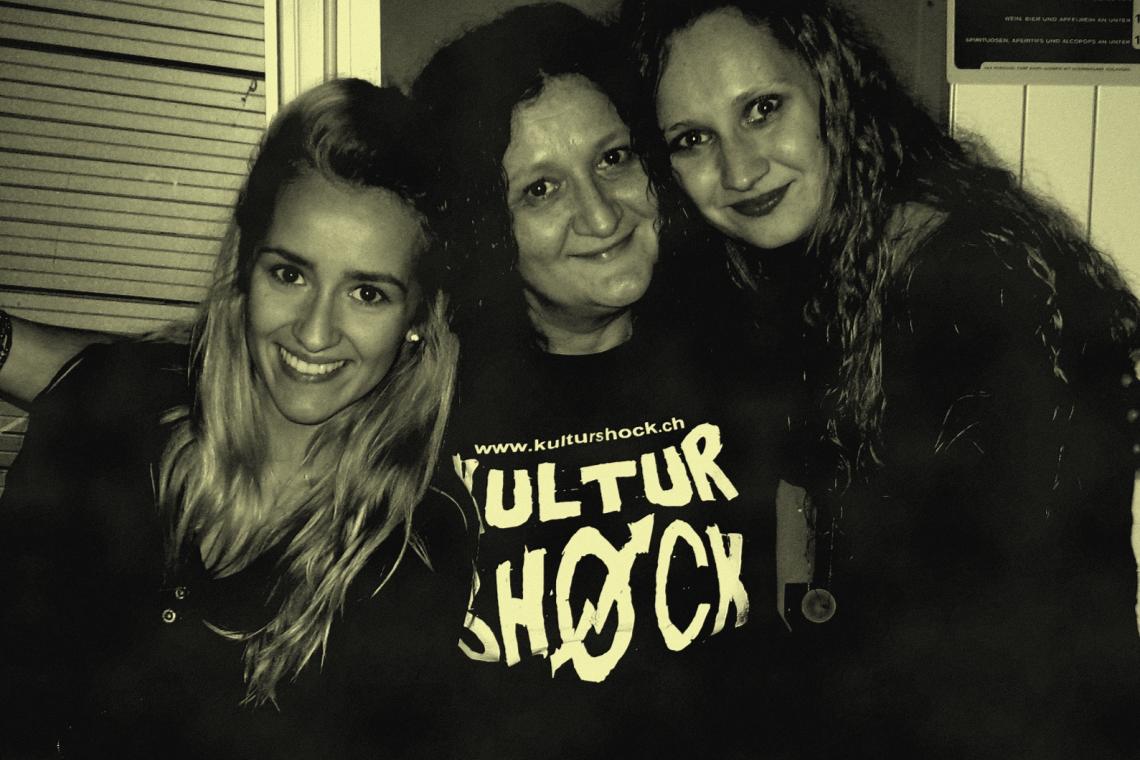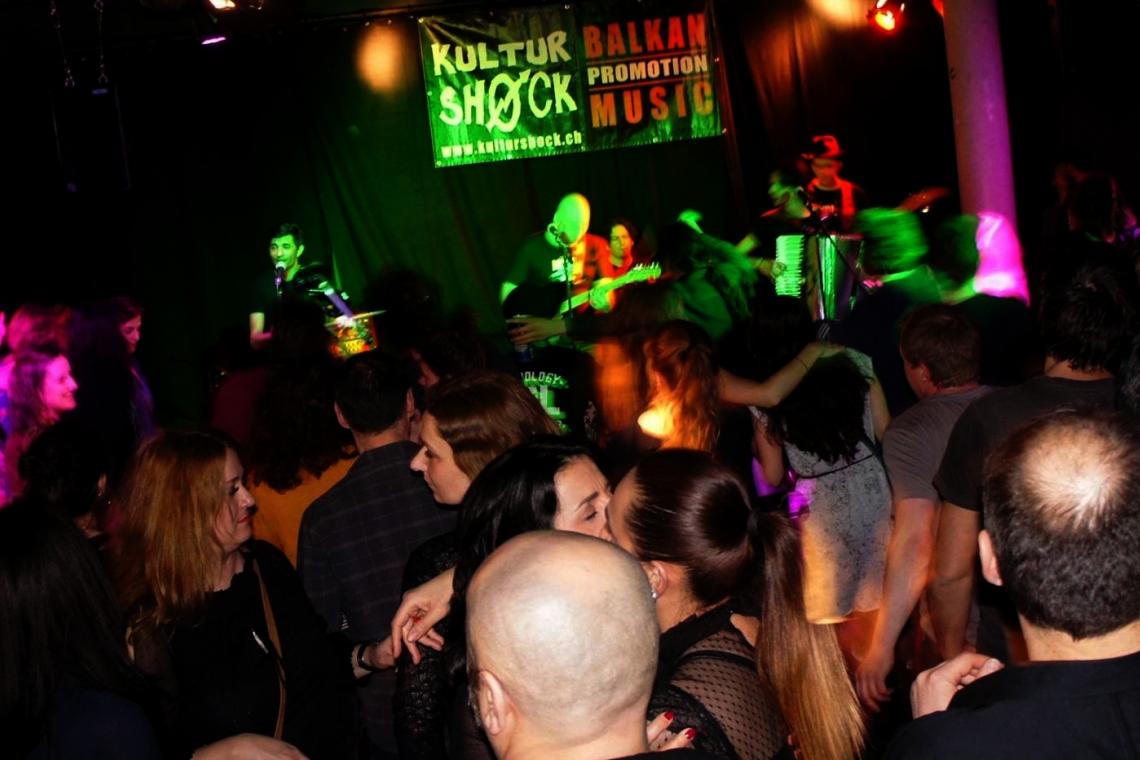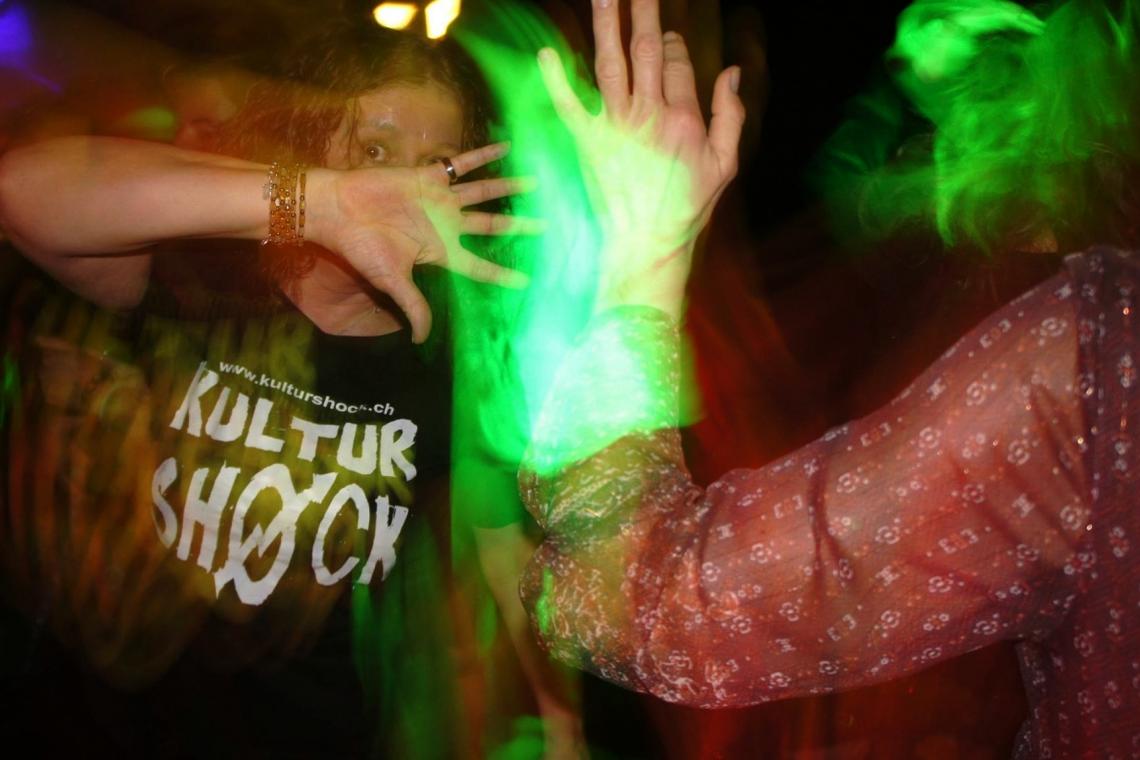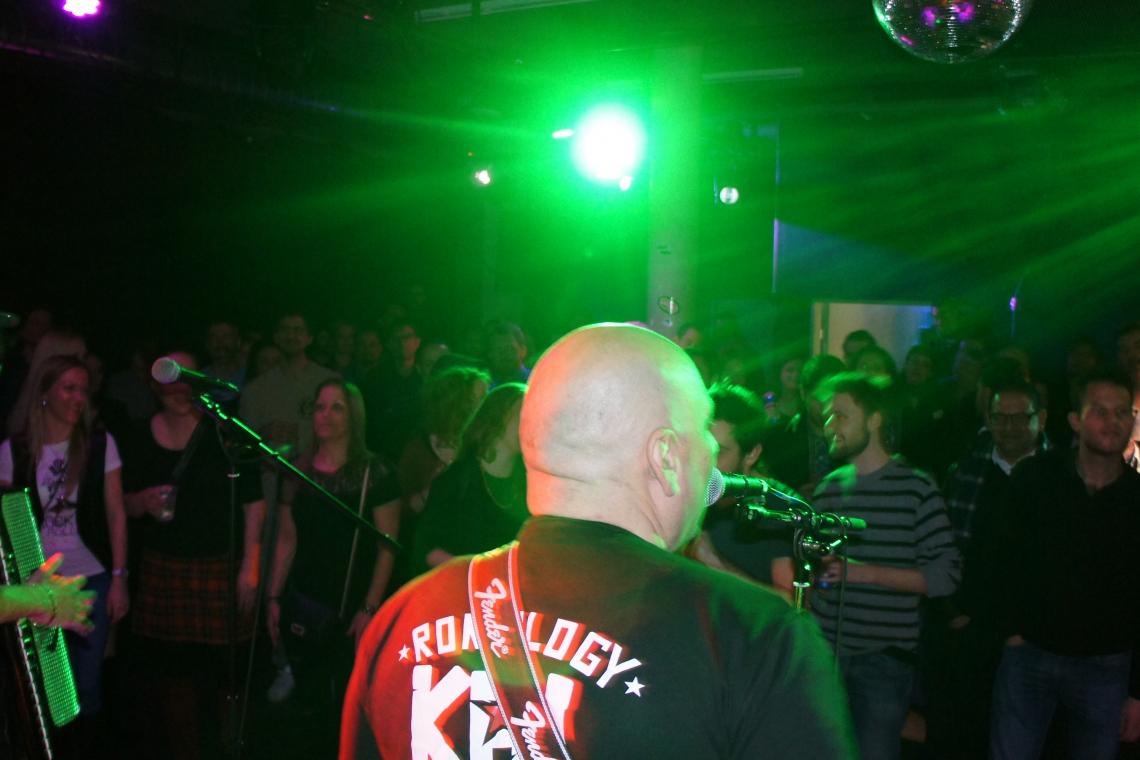Kultur Shock organises regular concerts of Balkan bands and performers once per month. These concerts are followed by the Balkan ★ World Night Party, during which Mario Perić presents the best music from the Balkans, to which persons dance and celebrate into the morning hours. Kultur Shock organised a concert of Božo Vrećo, the well-known young Bosnian and Herzegovinian performer of Bosnian sevdalinka songs in December 2017. The tickets for his concert were sold out a whole month before the concert. Bosnian Herzegovinian bands such as Zabranjeno pušenje, Divlje jagode, Teška industrija, also performed at Kultur Shock. One of the most energetic bands that performed there, whose concert both Mario and the audience still frequently mention, was Dubioza kolektiv, in 2012, when the band's career was taking off.
Mario Perić was certainly one of the pioneers on the Swiss scene, when he started promoting Balkan music, when it was still unknown to the public-at-large, and he has stayed true to his concept to this day, when this music has already become a trend and part of the music scene in Switzerland. The concept of Kultur Shock includes all music traditions, rock, jazz, gypsy, sevdah and folk, from all geographic areas in the Balkans: ''All music genres are acceptable, with the exception of turbo folk, which I am neither interested in nor support nor have an audience for'', explains Mario and laughs. ''I have to say that all of this means a lot to me. I am incredibly happy to see Swiss people coming to a concert, especially those that come for the first time, and one can see that they are delighted, fully relaxed and that they accept this emotional side of our music, which is really strong. There is a lot of cordiality in all of this, and this is what attracts them. People see this also in me, especially when I work as a DJ after the concert, they see that I truly do all that from the bottom of my heart''.
Beginnings at vinyl records markets with rare editions
Mario was born in Zenica, Bosnia and Herzegovina, where he graduated from the secondary medical school and as early as at the beginning of 1980s he arrived in Switzerland as a seasonal worker, doing various jobs in Basel and Thun. He was granted a permanent residence permit in 1988 and he thus made a final decision to stay in Switzerland. Mario immediately started following music trends and his interest in progressive rock music and rare vinyl record editions. He almost immediately started participating in vinyl record markets in Switzerland, which were the key place for presenting and trading in rare vinyl music editions. Due to his origin, clients frequently asked him about rare editions of the former Yugoslavian music scene and Mario quickly realised that there was a market niche. Together with colleagues he established a scene and market for rare albums from the Balkans.
''Demand for various Balkan bands was thus created in this market, because we promoted them well and their records were very sought after'', explains Mario. ''These were bands such as Igra staklenih perli from Zagreb, Mizar from Macedonia, Tako from Belgrade, Izmir from Slovenia, and I remember well the group Porodična manifaktura pravljenja crnog leba, which had only one album and its price was very high. All of them were unconventional bands, which produced a small number of copies, but were very good! The demand after these bands was enormous, like the demand after rare old wines! Their records cost from 200 to 500 US$. You can take a look at e-bay and see how much they cost today''.
Mario opened his first vinyl record shop in Bern in 1993, and that was the beginning of all his further music projects. He specialised in rare vinyl records with a small number of copies, which were difficult to find. Their sale went very well both in Switzerland and other countries, even in Japan, the USA and Australia.
''I am really proud that we created promoted these old Balkan bands'', says Mario. ''Then CDs appeared, so I started selling CD albums of Balkan groups. I can truly say that I was one of the first ones who started making CDs in the former Yugoslavia. Back then I also contacted Jugoton, PGP, Sarajevo Disk and Diskoton, and I offered them cooperation. It was in 1993, the war period, and the situation was chaotic. However, I truly tried to do something. It was also some sort of an escape from such a terrible situation, the attempt to do something and get out of that war atmosphere, to awaken the interest of persons in something else''.
How the interest in Bosnian and Herzegovinian and Balkan music grew
Mario entered into a contract with Jugoton and bought the rights to print CDs as repeated editions of albums recorded at this record company. This is how Krin Music was born, his first music production company, which reproduced music albums on CDs and released various music compilations.
Krin Music was the first to publish a CD edition containing 4 CDs with the complete Jugoton's discography of Indexi, the cult band from Bosnia and Herzegovina. Compilation discs were in high demand during the war period: ''I issued various compilations, and those were mostly sought after. These first compilations included bands from Bosnia and Herzegovina, Senad od Bosne, Zdravko Čolić, Hari Mata Hari, Teška industrija, etc. I made around 100 editions, which is really a lot!''
''Of course, the war influenced me, and I was terribly sorry that Bosnia and Herzegovina was in such a situation'', continues Mario, ''I wanted to do something in order for our culture to be heard and in order to be seen that there was more to us than just the war. While refugees from Bosnia and Herzegovina were here, it meant so much to them to buy a CD with our music and to listen to it at home. Music means a lot to our people, it is really a phenomenon. It was a great nostalgia, but a beautiful one, which our people needed. On the other hand, I was very glad to be able to show Swiss people that we have good music, and the Swiss audience was really interested and understood that it was an interesting and good music''.
After Krin Music, Mario established Promo centar, another company that released music editions until the end of 1990s, when the Internet took over the market. Having a good knowledge of the music market, Mario understood that the era of digitalisation would suffocate small companies and their sale of music editions, but that this would make live concerts more valuable, and that he should focus his business on this. He thus decided to start organising concerts of Balkan bands, which was also accompanied by the establishment of Kultur Shock for the promotion of Balkan music.
Why does the audience like Balkan music?
In 1999, Mario opened a small studio in Berne, which was also the venue of the first concert. This was the birth of Kultur Shock, which is still a lively place frequented by an audience that likes Balkan music. ''At the end of 1990s, there was a wider interest in Balkan music, probably because of Bregović, gypsy music with trumpet orchestras and Kusturica's films, so that Balkan music became a trend. At the beginning it was not simple to organise concerts and music events, because there was no guarantee that the audience would come and that the whole project would function. At the beginning, these were concerts for only 20 or 30 people, and it was necessary to be persistent and endure. Today, I do small concerts for around 100 persons, but also bigger ones for several hundred persons at various places in Berne. I have many friends who help me and participate in all of this. My family participates too, my wife and my two daughters, who are both in love with this story, even their partners are. The husband of one of my daughters is a Spaniard, and the husband of the other one is a Swiss. They are thrilled with our music and they like to come to concerts''.
Mario believes that there are two important factors for the appeal of Balkan music to the Swiss audience: ''This music is emotionally charged. People recognise and react to these emotions. On the other hand, Balkan music is very cheerful, especially gypsy music, and the Swiss like this very much. It is either very sad or very cheerful, and if one also adds some alcohol (laughter), then the mood is good for sure, everyone is relaxed, everyone is cheerful, jumping, singing, dancing, and that is a real Balkan Fest! Since I have always worked as a DJ, I have to observe the audience and know how music reaches people. I see new faces that come in, I see them standing somewhere on the side, and they timidly observe what is going on, how everyone is jumping, singing, shouting, and they are confused and surprised at the sight. We always take photos, and we can see the same faces in these photos, how they become fully integrated after two or three concerts, they enjoy, dance, jump, etc.''.
Kultur Shock does not receive any subsidies from private foundations or city funds: ''That is a complicated cooperation and they assist only if a concert fails and one is indebted. I was not interested in that, so that I gave up on trying to obtain subsidies. I thus receive no support or subventions, I work on my own with my people at Kultur Shock''.
Today, Mario Perić works as a social worker at a clinic for the treatment of drug addicts and he has the ambition to maintain Kultur Shock as a lively place that gathers fans of Balkan music in Berne: ''This is fulfilling for me, because I would like to demonstrate that Balkan music is valuable and that it deserves such an image and attention. When I started, there was no interest in this music, and people did not know what kind of music it was until the end of 1990s. I am truly glad that now Balkan music is known and appreciated''.
Links:
Article "Heute nennen wir uns selber Jugos", Berner Zeitung or Kultur Shock.

